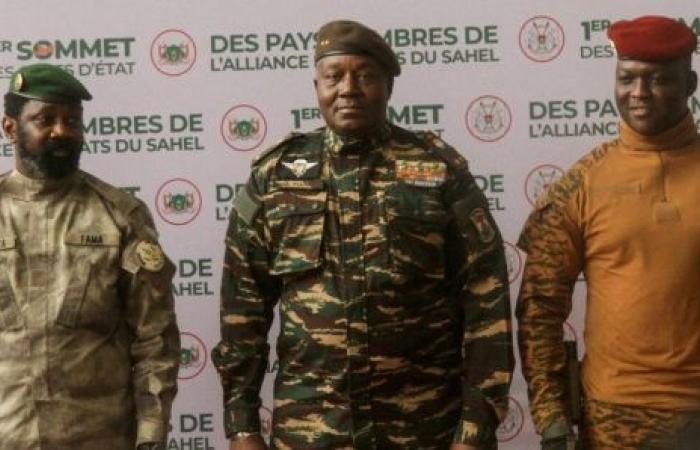The military regimes of Burkina Faso, Mali and Niger warned on Friday that their decision to leave the Economic Community of West African States (ECOWAS) was “irreversible”, two days before a summit of the latter who hoped to change their minds.
The three countries which form the Alliance of Sahel States (AES), all governed by juntas hostile to France, announced in January their desire to leave ECOWAS, an organization today bringing together 15 countries and which they consider exploited by the former colonial power.
“While recalling the irreversible decision of the States of the Confederation to withdraw from ECOWAS, the ministers commit (…) to continue discussions aimed at agreeing on exit arrangements in the interest of the populations of the Confederation,” specify the three countries. after a ministerial meeting in Niamey on Friday.
According to ECOWAS texts, the departure of the three countries becomes effective one year after its announcement, therefore in January 2025.
ECOWAS is holding a summit on Sunday in Abuja, Nigeria’s capital, to discuss this thorny issue, but no delegation from the AES countries has been announced and their presence remains unlikely at this stage.
Such a departure could have significant economic and political implications for the West African region, notably the question of the free movement of people and goods in the region, the theme of the Niamey meeting on Friday.
The AES confederation represents a vast landlocked territory, with a population of 72 million inhabitants.
– Rupture –
This declaration by the AES countries undermines the efforts undertaken by ECOWAS to try to avoid divorce.
In July, she appointed Senegalese President Bassirou Diomaye Faye as mediator in order to plead for their retention in the organization. The latter reported progress in this mission at the start of the week.
The break between the AES and ECOWAS occurred after the coup d’état in Niger, in July 2023, the sixth in the region in three years (two in Mali, two in Burkina and one in Guinea).
The West African organization had threatened military intervention and imposed heavy economic sanctions on Niamey, which have since been lifted.
The AES countries which have turned their backs on France have at the same time moved closer to partners deemed more “sincere” such as Russia.
They also believe that ECOWAS has not helped them enough in the face of recurring jihadist violence which has left tens of thousands dead in their three countries in a decade.
The three members of the AES took several steps to cement their confederation.
For example, they signed a memorandum of understanding on the end of roaming charges for telephone communications between their countries.
They also aim to harmonize their travel and identity documents for free movement of their nationals and their goods.
There remains the question of currency: the AES countries are still part of the West African Economic and Monetary Union (UEMOA) and use the CFA franc, a currency from which they have mentioned a possible exit in the medium term.






